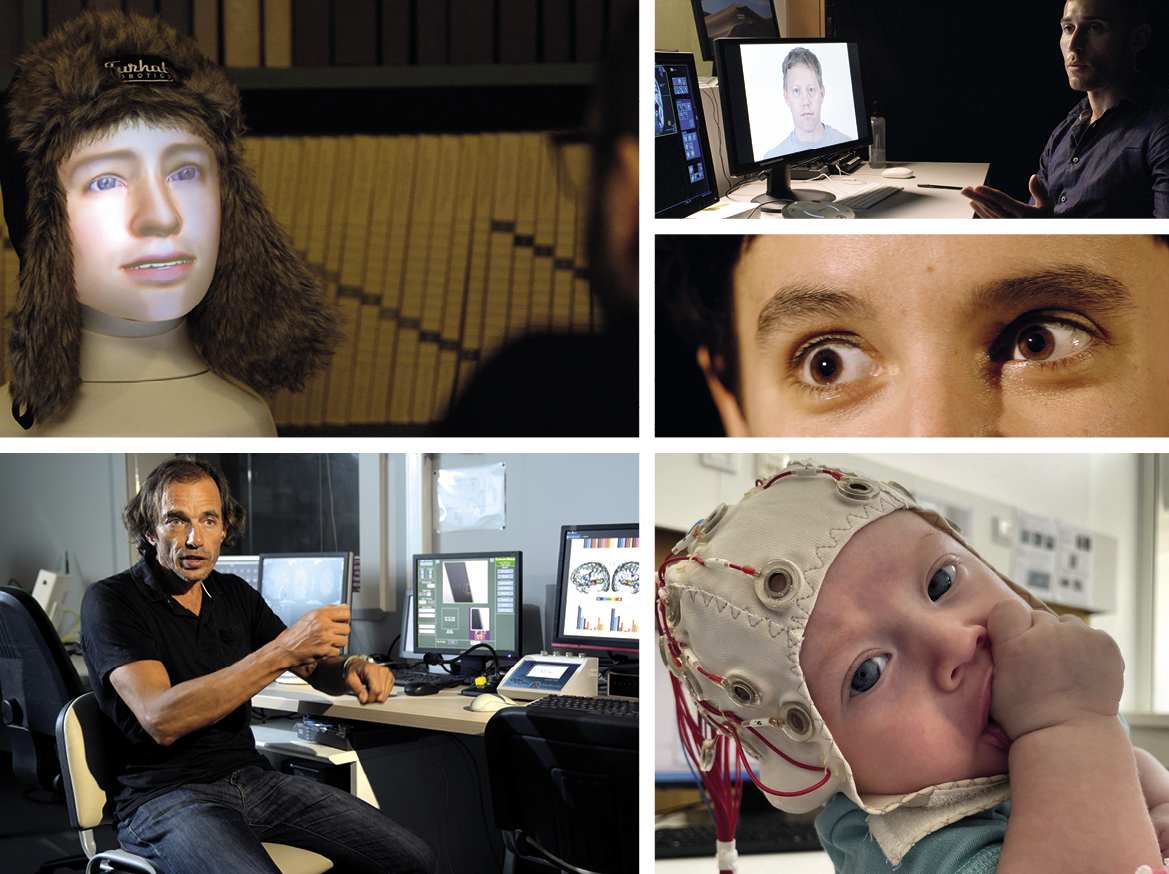FIRST IMPRESSIONS

Friend or foe? In a fraction of a second, our brain forms an opinion about a person based on facial expressions and voice. But artificial intelligence can also interpret human emotions with increasing accuracy.
Faces and voices: these are the first impressions we get of a person. In less than half of a second, we decide whom we trust, who we like, how intelligent we think a person is. And all this is based on the astonishing processing power of our brains. We learn to read facial expressions as babies. We then spend the rest of our lives trying to interpret emotions and see behind people’s faces. Voices are perhaps even more important. Speed, syntax, inflection, phonetics – all of these things give us information about what a person is feeling. But we aren’t the only experts who can decipher human emotions – artificial intelligence technology is also learning to read faces and voices. A photo or a spoken sentence is usually enough to obtain information about identity, health, emotions and even personality. And the internet is full of faces and voices. It is a huge database that is growing constantly. Based on the sound of our voices, artificial intelligence can now detect whether we suffer from Parkinson's, depression or even Covid-19. What does our brain understand, what can artificial intelligence achieve, and what are the mechanisms behind it? International experts offer us an insight into the latest scientific findings.